16 books about Lost Civilizations
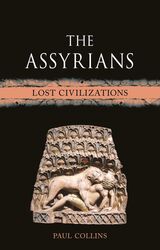
The Assyrians
Lost Civilizations
Paul Collins
Reaktion Books, 2024
An accessible guide to the history of the Assyrian empire from the perspective of its powerful elites.
At the height of its power near 660 BC, the Assyrian empire, centered in northern Iraq, wielded dominance from Egypt to Iran. This vast region was ruled by a series of kings who demonstrated their power with magnificent palaces adorned by sculptures depicting rituals, battles, and hunts. Established by military might, the empire thrived under the guidance of scholars who interpreted divine will and administrators who relocated tens of thousands of people to serve the state. This book relates the history of Assyria through the lens of its royal family and the officials who commissioned its buildings, art, and literature—each a critical part of the foundation for the later Babylonian and Persian empires.
At the height of its power near 660 BC, the Assyrian empire, centered in northern Iraq, wielded dominance from Egypt to Iran. This vast region was ruled by a series of kings who demonstrated their power with magnificent palaces adorned by sculptures depicting rituals, battles, and hunts. Established by military might, the empire thrived under the guidance of scholars who interpreted divine will and administrators who relocated tens of thousands of people to serve the state. This book relates the history of Assyria through the lens of its royal family and the officials who commissioned its buildings, art, and literature—each a critical part of the foundation for the later Babylonian and Persian empires.
[more]
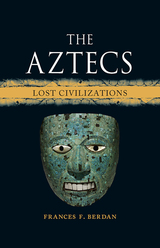
The Aztecs
Lost Civilizations
Frances F. Berdan
Reaktion Books, 2021
In this rich and surprising book, Frances F. Berdan shines fresh light on the enigmatic ancient Aztecs. She casts her net wide, covering topics as diverse as ethnicity, empire-building, palace life, etiquette, origin myths, and human sacrifice. While the Aztecs are often described as “stone age,” their achievements were remarkable. They constructed lofty temples and produced fine arts in precious stones, gold, and shimmering feathers. They crafted beautiful poetry and studied the sciences. They had schools and libraries, entrepreneurs and money, and a bewildering array of deities and dramatic ceremonies. Based on the latest research and lavishly illustrated, this book reveals the Aztecs to have created a civilization of sophistication and finesse.
[more]
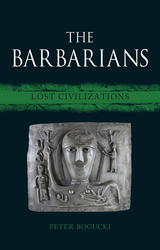
The Barbarians
Lost Civilizations
Peter Bogucki
Reaktion Books, 2024
Beginning in the Stone Age and continuing through the collapse of the Roman empire, a fascinating exploration of the increasing complexity, technological accomplishments, and distinctive practices of the non-literate peoples known as Barbarians.
We often think of the civilizations of ancient Greece and Rome as discrete incubators of Western culture, places where ideas about everything from government to art to philosophy were free to develop and then be distributed outward into the wider Mediterranean world. But as Peter Bogucki reminds us in this book, Greece and Rome did not develop in isolation. All around them were rural communities who had remarkably different cultures, ones few of us know anything about. Telling the stories of these nearly forgotten people, he offers a long-overdue enrichment of how we think about classical antiquity.
As Bogucki shows, the lands to the north of the Greek and Roman peninsulas were inhabited by non-literate communities that stretched across river valleys, mountains, plains, and shorelines from the Atlantic Ocean in the west to the Ural Mountains in the east. What we know about them is almost exclusively through archeological finds of settlements, offerings, monuments, and burials—but these remnants paint a portrait that is just as compelling as that of the great literate, urban civilizations of this time. Bogucki sketches the development of these groups’ cultures from the Stone Age through the collapse of the Roman Empire in the west, highlighting the increasing complexity of their societal structures, their technological accomplishments, and their distinct cultural practices. He shows that we are still learning much about them, as he examines new historical and archeological discoveries as well as the ways our knowledge about these groups has led to a vibrant tourist industry and even influenced politics. The result is a fascinating account of several nearly vanished cultures and the modern methods that have allowed us to rescue them from historical oblivion.
We often think of the civilizations of ancient Greece and Rome as discrete incubators of Western culture, places where ideas about everything from government to art to philosophy were free to develop and then be distributed outward into the wider Mediterranean world. But as Peter Bogucki reminds us in this book, Greece and Rome did not develop in isolation. All around them were rural communities who had remarkably different cultures, ones few of us know anything about. Telling the stories of these nearly forgotten people, he offers a long-overdue enrichment of how we think about classical antiquity.
As Bogucki shows, the lands to the north of the Greek and Roman peninsulas were inhabited by non-literate communities that stretched across river valleys, mountains, plains, and shorelines from the Atlantic Ocean in the west to the Ural Mountains in the east. What we know about them is almost exclusively through archeological finds of settlements, offerings, monuments, and burials—but these remnants paint a portrait that is just as compelling as that of the great literate, urban civilizations of this time. Bogucki sketches the development of these groups’ cultures from the Stone Age through the collapse of the Roman Empire in the west, highlighting the increasing complexity of their societal structures, their technological accomplishments, and their distinct cultural practices. He shows that we are still learning much about them, as he examines new historical and archeological discoveries as well as the ways our knowledge about these groups has led to a vibrant tourist industry and even influenced politics. The result is a fascinating account of several nearly vanished cultures and the modern methods that have allowed us to rescue them from historical oblivion.
[more]
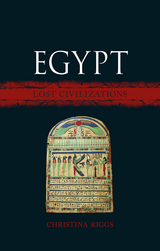
Egypt
Lost Civilizations
Christina Riggs
Reaktion Books, 2017
From Roman villas to Hollywood films, ancient Egypt has been a source of fascination and inspiration in many other cultures. But why, exactly, has this been the case? In this book, Christina Riggs examines the history, art, and religion of ancient Egypt to illuminate why it has been so influential throughout the centuries. In doing so, she shows how the ancient past has always been used to serve contemporary purposes.
Often characterized as a lost civilization that was discovered by adventurers and archeologists, Egypt has meant many things to many different people. Ancient Greek and Roman writers admired ancient Egyptian philosophy, and this admiration would influence ideas about Egypt in Renaissance Europe as well as the Arabic-speaking world. By the eighteenth century, secret societies like the Freemasons looked to ancient Egypt as a source of wisdom, but as modern Egypt became the focus of Western military strategy and economic exploitation in the nineteenth and early twentieth centuries, its ancient remains came to be seen as exotic, primitive, or even dangerous, tangled in the politics of racial science and archaeology. The curse of the pharaohs or the seductiveness of Cleopatra were myths that took on new meanings in the colonial era, while ancient Egypt also inspired modernist, anti-colonial movements in the arts, such as in the Harlem Renaissance and Egyptian Pharaonism. Today, ancient Egypt—whether through actual relics or through cultural homage—can be found from museum galleries to tattoo parlors. Riggs helps us understand why this “lost civilization” continues to be a touchpoint for defining—and debating—who we are today.
Often characterized as a lost civilization that was discovered by adventurers and archeologists, Egypt has meant many things to many different people. Ancient Greek and Roman writers admired ancient Egyptian philosophy, and this admiration would influence ideas about Egypt in Renaissance Europe as well as the Arabic-speaking world. By the eighteenth century, secret societies like the Freemasons looked to ancient Egypt as a source of wisdom, but as modern Egypt became the focus of Western military strategy and economic exploitation in the nineteenth and early twentieth centuries, its ancient remains came to be seen as exotic, primitive, or even dangerous, tangled in the politics of racial science and archaeology. The curse of the pharaohs or the seductiveness of Cleopatra were myths that took on new meanings in the colonial era, while ancient Egypt also inspired modernist, anti-colonial movements in the arts, such as in the Harlem Renaissance and Egyptian Pharaonism. Today, ancient Egypt—whether through actual relics or through cultural homage—can be found from museum galleries to tattoo parlors. Riggs helps us understand why this “lost civilization” continues to be a touchpoint for defining—and debating—who we are today.
[more]
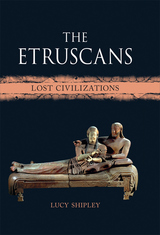
The Etruscans
Lost Civilizations
Lucy Shipley
Reaktion Books, 2017
Now in paperback, a brief introduction to the mysteries of the enigmatic, ancient civilization in the area of modern Italy.
The Etruscans were a powerful people, marked by an influential civilization in ancient Italy. But despite their prominence, the Etruscans are often portrayed as mysterious—a strange and unknowable people whose language and culture have largely vanished. Lucy Shipley’s The Etruscans presents a different picture.
Shipley writes of a people who traded with Greece and shaped the development of Rome, who inspired Renaissance artists and Romantic firebrands, and whose influence is still felt strongly in the modern world. Covering colonialism and conquest, misogyny and mystique, she weaves Etruscan history with new archaeological evidence to give us a revived picture of the Etruscan people. The book traces trade routes and trains of thought, describing the journey of Etruscan objects from creation to use, loss, rediscovery, and reinvention. From the wrappings of an Egyptian mummy displayed in a fashionable salon to the extra-curricular activities of Bonaparte, from a mass looting craze to a bombed museum in a town marked by massacre, the book is an extraordinary voyage through Etruscan archaeology, which ultimately leads to surprising and intriguing places.
In this sharp and groundbreaking book, Shipley gives readers a unique perspective on an enigmatic people, revealing just how much we know about the Etruscans—and just how much still remains undiscovered.
The Etruscans were a powerful people, marked by an influential civilization in ancient Italy. But despite their prominence, the Etruscans are often portrayed as mysterious—a strange and unknowable people whose language and culture have largely vanished. Lucy Shipley’s The Etruscans presents a different picture.
Shipley writes of a people who traded with Greece and shaped the development of Rome, who inspired Renaissance artists and Romantic firebrands, and whose influence is still felt strongly in the modern world. Covering colonialism and conquest, misogyny and mystique, she weaves Etruscan history with new archaeological evidence to give us a revived picture of the Etruscan people. The book traces trade routes and trains of thought, describing the journey of Etruscan objects from creation to use, loss, rediscovery, and reinvention. From the wrappings of an Egyptian mummy displayed in a fashionable salon to the extra-curricular activities of Bonaparte, from a mass looting craze to a bombed museum in a town marked by massacre, the book is an extraordinary voyage through Etruscan archaeology, which ultimately leads to surprising and intriguing places.
In this sharp and groundbreaking book, Shipley gives readers a unique perspective on an enigmatic people, revealing just how much we know about the Etruscans—and just how much still remains undiscovered.
[more]
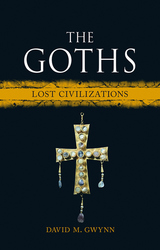
The Goths
Lost Civilizations
David M. Gwynn
Reaktion Books, 2017
The Goths are truly a “lost civilization.” Sweeping down from the north, ancient Gothic tribes sacked the imperial city of Rome and set in motion the decline and fall of the western Roman empire. Ostrogothic and Visigothic kings ruled over Italy and Spain, dominating early medieval Europe. Yet after the last Gothic kingdom fell more than a thousand years ago, the Goths disappeared as an independent people. Over the centuries that followed, as traces of Gothic civilization vanished, its people came to be remembered as both barbaric destroyers and heroic champions of liberty.
In this engaging history, David M. Gwynn brings together the interwoven stories of the original Goths and the diverse Gothic heritage, a heritage that continues to shape our modern world. From the ancient migrations to contemporary Goth culture, through debates over democratic freedom and European nationalism, and drawing on writers from Shakespeare to Bram Stoker, Gwynn explores the ever-widening gulf between the Goths of history and the popular imagination. Historians, students of architecture and literature, and general readers alike will learn something new about this great lost civilization.
In this engaging history, David M. Gwynn brings together the interwoven stories of the original Goths and the diverse Gothic heritage, a heritage that continues to shape our modern world. From the ancient migrations to contemporary Goth culture, through debates over democratic freedom and European nationalism, and drawing on writers from Shakespeare to Bram Stoker, Gwynn explores the ever-widening gulf between the Goths of history and the popular imagination. Historians, students of architecture and literature, and general readers alike will learn something new about this great lost civilization.
[more]
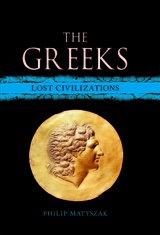
The Greeks
Lost Civilizations
Philip Matyszak
Reaktion Books, 2018
This book is a portrait of Ancient Greece—but not as we know it. Few people today appreciate that Greek civilization was spread across the Middle East, or that there were Greek cities in the foothills of the Himalayas. Philip Matyszak tells the lost stories of the Greeks outside Greece, compatriots of luminaries like Sappho, the poet from Lesbos; Archimedes, a native of Syracuse; and Herodotus, who was born in Asia Minor as a subject of the Persian Empire. Stretching from the earliest prehistoric Greek colonies around the Black Sea to Greek settlements in Spain and Italy, through the conquests of Alexander and the glories of the Hellenistic era, to the fall of Byzantium, The Greeks illuminates the lives of the Greek soldiers, statesmen, scientists, and philosophers who laid the foundations of what we call “Greek culture” today—though they seldom, if ever, set foot on the Greek mainland. Instead of following the well-worn path of examining the rise of Athenian democracy and Spartan militarism, this book offers a fresh look at what it meant to be Greek by instead telling the story of the Greeks abroad, from modern-day India to Spain.
[more]
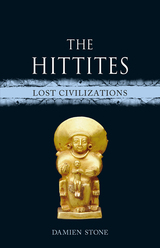
The Hittites
Lost Civilizations
Damien Stone
Reaktion Books, 2023
An accessible introduction to the Bronze Age culture in Asia Minor.
Famed for their warriors, the Hittites flourished in the region of modern Turkey from the seventeenth to thirteenth centuries BC. In this book, archaeologist Damien Stone explores the rich history of the Hittite civilization beyond their skill in battle, from religious reverence for the sun and storms to eclectic rock carvings which survive to this day. Stone describes the colorful succession of Hittite rulers, complete with assassinations, intrigue, and an evil stepmother, but he also parses the development of the Hittite language and considers the Hittites’ legacy in religion, art, and culture today. In short, The Hittites is a wide-ranging, accessible introduction to this vibrant ancient culture.
Famed for their warriors, the Hittites flourished in the region of modern Turkey from the seventeenth to thirteenth centuries BC. In this book, archaeologist Damien Stone explores the rich history of the Hittite civilization beyond their skill in battle, from religious reverence for the sun and storms to eclectic rock carvings which survive to this day. Stone describes the colorful succession of Hittite rulers, complete with assassinations, intrigue, and an evil stepmother, but he also parses the development of the Hittite language and considers the Hittites’ legacy in religion, art, and culture today. In short, The Hittites is a wide-ranging, accessible introduction to this vibrant ancient culture.
[more]
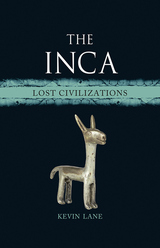
The Inca
Lost Civilizations
Kevin Lane
Reaktion Books, 2022
From their mythical origins to astonishing feats of engineering, an expertly informed reassessment of one of the great empires of the Americas: the Inca.
In their heyday, the Inca ruled over the largest land empire in the Americas, reaching the pinnacle of South American civilization. Known as the “Romans of the Americas,” these fabulous engineers converted the vertiginous, challenging landscapes of the Andes into a fertile region able to feed millions, alongside building royal estates such as Machu Picchu and a 40,000-kilometer-long road network crisscrossed by elegant braided-rope suspension bridges.
Beautifully illustrated, this book examines the mythical origins and history of the Inca, including their economy, society, technology, and beliefs. Kevin Lane reconsiders previous theories while proposing new interpretations concerning the timeline of Inca expansion, their political organization, and the role of women in their society while showcasing how their legacy endures today.
In their heyday, the Inca ruled over the largest land empire in the Americas, reaching the pinnacle of South American civilization. Known as the “Romans of the Americas,” these fabulous engineers converted the vertiginous, challenging landscapes of the Andes into a fertile region able to feed millions, alongside building royal estates such as Machu Picchu and a 40,000-kilometer-long road network crisscrossed by elegant braided-rope suspension bridges.
Beautifully illustrated, this book examines the mythical origins and history of the Inca, including their economy, society, technology, and beliefs. Kevin Lane reconsiders previous theories while proposing new interpretations concerning the timeline of Inca expansion, their political organization, and the role of women in their society while showcasing how their legacy endures today.
[more]
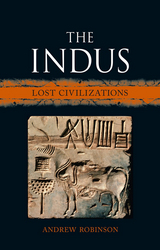
The Indus
Lost Civilizations
Andrew Robinson
Reaktion Books, 2015
The Indus civilization flourished for half a millennium from about 2600 to 1900 BCE, when it mysteriously declined and vanished from view. It remained invisible for almost four thousand years, until its ruins were discovered in the 1920s by British and Indian archaeologists. Today, after almost a century of excavation, it is regarded as the beginning of Indian civilization and possibly the origin of Hinduism. The Indus: Lost Civilizations is an accessible introduction to every significant aspect of an extraordinary and tantalizing “lost” civilization, which combined artistic excellence, technological sophistication, and economic vigor with social egalitarianism, political freedom, and religious moderation. The book also discusses the vital legacy of the Indus civilization in India and Pakistan today.
[more]
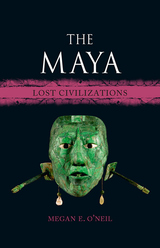
The Maya
Lost Civilizations
Megan E. O’Neil
Reaktion Books, 2022
An illuminating look at the myriad communities who have engaged with the ancient Maya over the centuries.
This book reveals how the ancient Maya—and their buildings, ideas, objects, and identities—have been perceived, portrayed, and exploited over five hundred years in the Americas, Europe, and beyond.
Engaging in interdisciplinary analysis, the book summarizes ancient Maya art and history from the preclassical period to the Spanish invasion, as well as the history of outside engagement with the ancient Maya, from Spanish invaders in the sixteenth century to later explorers and archaeologists, taking in scientific literature, visual arts, architecture, world’s fairs, and Indigenous activism. It also looks at the decipherment of Maya inscriptions, Maya museum exhibitions and artists’ responses, and contemporary Maya people’s engagements with their ancestral past. Featuring the latest research, this book will interest scholars as well as general readers who wish to know more about this ancient, fascinating culture.
This book reveals how the ancient Maya—and their buildings, ideas, objects, and identities—have been perceived, portrayed, and exploited over five hundred years in the Americas, Europe, and beyond.
Engaging in interdisciplinary analysis, the book summarizes ancient Maya art and history from the preclassical period to the Spanish invasion, as well as the history of outside engagement with the ancient Maya, from Spanish invaders in the sixteenth century to later explorers and archaeologists, taking in scientific literature, visual arts, architecture, world’s fairs, and Indigenous activism. It also looks at the decipherment of Maya inscriptions, Maya museum exhibitions and artists’ responses, and contemporary Maya people’s engagements with their ancestral past. Featuring the latest research, this book will interest scholars as well as general readers who wish to know more about this ancient, fascinating culture.
[more]
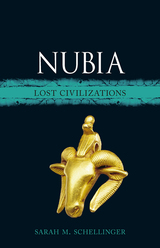
Nubia
Lost Civilizations
Sarah M. Schellinger
Reaktion Books, 2022
Drawing on the latest archaeological and textual discoveries, a revealing look at the rich and dynamic civilization of Nubia.
Nubia, the often-overlooked southern neighbor of Egypt, has been home to groups of vibrant and adaptive peoples for millennia. This book explores the Nubians’ religious, social, economic, and cultural histories, from their nomadic origins during the Stone Ages to their rise to power during the Napatan and Meroitic periods, and it concludes with the recent struggles for diplomacy in North Sudan. Situated among the ancient superpowers of Egypt, Aksum, and the Greco-Roman world, Nubia’s connections with these cultures shaped the region’s history through colonialism and cultural entanglement. Sarah M. Schellinger presents the Nubians through their archaeological and textual remains, reminding readers that they were a rich and dynamic civilization in their own right.
Nubia, the often-overlooked southern neighbor of Egypt, has been home to groups of vibrant and adaptive peoples for millennia. This book explores the Nubians’ religious, social, economic, and cultural histories, from their nomadic origins during the Stone Ages to their rise to power during the Napatan and Meroitic periods, and it concludes with the recent struggles for diplomacy in North Sudan. Situated among the ancient superpowers of Egypt, Aksum, and the Greco-Roman world, Nubia’s connections with these cultures shaped the region’s history through colonialism and cultural entanglement. Sarah M. Schellinger presents the Nubians through their archaeological and textual remains, reminding readers that they were a rich and dynamic civilization in their own right.
[more]
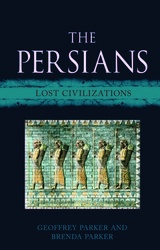
The Persians
Lost Civilizations
Brenda Parker and Geoffrey Parker
Reaktion Books, 2017
Now in paperback, this is a history of an incomparable culture whose influence can still be seen, millennia later, in modern-day Iran and the wider Middle East.
During the first and second millennia BCE a swathe of nomadic peoples migrated outward from Central Asia into the Eurasian periphery. One group of these people would find themselves encamped in an unpromising, arid region just south of the Caspian Sea. From these modest and uncertain beginnings, they would go on to form one of the most powerful empires in history: the Persian Empire. In this book, Geoffrey and Brenda Parker tell the captivating story of this ancient civilization and its enduring legacy to the world.
The authors examine the unique features of Persian life and trace their influence throughout the centuries. They examine the environmental difficulties the early Persians encountered and how, in overcoming them, they were able to develop a unique culture that would culminate in the massive, first empire, the Achaemenid Empire. Extending their influence into the maritime west, they fought the Greeks for mastery of the eastern Mediterranean—one of the most significant geopolitical contests of the ancient world. And the authors paint vivid portraits of Persian cities and their spectacular achievements: intricate and far-reaching roadways, an astonishing irrigation system that created desert paradises, and, above all, an extraordinary reflection of the diverse peoples that inhabited them.
During the first and second millennia BCE a swathe of nomadic peoples migrated outward from Central Asia into the Eurasian periphery. One group of these people would find themselves encamped in an unpromising, arid region just south of the Caspian Sea. From these modest and uncertain beginnings, they would go on to form one of the most powerful empires in history: the Persian Empire. In this book, Geoffrey and Brenda Parker tell the captivating story of this ancient civilization and its enduring legacy to the world.
The authors examine the unique features of Persian life and trace their influence throughout the centuries. They examine the environmental difficulties the early Persians encountered and how, in overcoming them, they were able to develop a unique culture that would culminate in the massive, first empire, the Achaemenid Empire. Extending their influence into the maritime west, they fought the Greeks for mastery of the eastern Mediterranean—one of the most significant geopolitical contests of the ancient world. And the authors paint vivid portraits of Persian cities and their spectacular achievements: intricate and far-reaching roadways, an astonishing irrigation system that created desert paradises, and, above all, an extraordinary reflection of the diverse peoples that inhabited them.
[more]
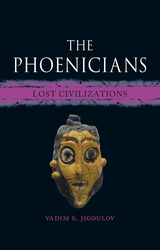
The Phoenicians
Lost Civilizations
Vadim S. Jigoulov
Reaktion Books, 2024
Drawing on an impressive range of archaeological and textual sources and a nuanced understanding of biases, this book offers a valuable reappraisal of the enigmatic Phoenicians.
The Phoenicians is a fascinating exploration of this much-mythologized people: their history, artistic heritage, and the scope of their maritime and colonizing activities in the Mediterranean. Two aspects of the book stand out from other studies of Phoenician history: the source-focused approach and the attention paid to the various ways that biases—ancient and modern—have contributed to widespread misconceptions about who the Phoenicians really were. The book describes and analyzes various artifacts (epigraphic, numismatic, and material remains) and considers how historians have derived information about a people with little surviving literature. This analysis includes a critical look at the primary texts (classical, Near Eastern, and biblical), the relationship between the Phoenician and Punic worlds; Phoenician interaction with the Greeks and others; and the repurposing of Phoenician heritage in modernity. Detailed and engrossing, The Phoenicians casts new light on this most enigmatic of civilizations.
The Phoenicians is a fascinating exploration of this much-mythologized people: their history, artistic heritage, and the scope of their maritime and colonizing activities in the Mediterranean. Two aspects of the book stand out from other studies of Phoenician history: the source-focused approach and the attention paid to the various ways that biases—ancient and modern—have contributed to widespread misconceptions about who the Phoenicians really were. The book describes and analyzes various artifacts (epigraphic, numismatic, and material remains) and considers how historians have derived information about a people with little surviving literature. This analysis includes a critical look at the primary texts (classical, Near Eastern, and biblical), the relationship between the Phoenician and Punic worlds; Phoenician interaction with the Greeks and others; and the repurposing of Phoenician heritage in modernity. Detailed and engrossing, The Phoenicians casts new light on this most enigmatic of civilizations.
[more]
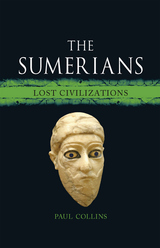
The Sumerians
Lost Civilizations
Paul Collins
Reaktion Books, 2021
The Sumerians are widely believed to have created the world’s earliest civilization on the fertile floodplains of southern Iraq from about 3500 to 2000 BCE. They have been credited with the invention of nothing less than cities, writing, and the wheel, and therefore hold an ancient mirror to our own urban, literate world. But is this picture correct? Paul Collins reveals how the idea of a Sumerian people was assembled from the archaeological and textual evidence uncovered in Iraq and Syria over the last one hundred fifty years. Reconstructed through the biases of those who unearthed them, the Sumerians were never simply lost and found, but reinvented a number of times, both in antiquity and in the more recent past.
[more]
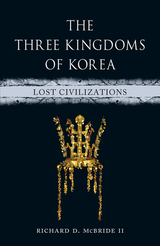
The Three Kingdoms of Korea
Lost Civilizations
Richard D. McBride II
Reaktion Books
An expansive and accessible introduction to the history of Korea during the first millennium CE.
Korea’s Three Kingdoms period is a genuine “lost civilization,” during which ancient realms vied for supremacy during the first millennium CE. Nobles from this period’s feuding states adopted and adapted Buddhism and Confucianism through interactions with early medieval Chinese dynasties. It was not until the mid-seventh century that the aristocratic Silla state, with the assistance of the mighty Chinese Tang empire, unified the Three Kingdoms of Korea by conquering the kingdoms of Koguryo and Paekche. Weaving together legends of ancient kings with the true histories of monks, scholars, and laypeople, this book sheds new light on a foundational period that continues to shape Korean identity today.
Korea’s Three Kingdoms period is a genuine “lost civilization,” during which ancient realms vied for supremacy during the first millennium CE. Nobles from this period’s feuding states adopted and adapted Buddhism and Confucianism through interactions with early medieval Chinese dynasties. It was not until the mid-seventh century that the aristocratic Silla state, with the assistance of the mighty Chinese Tang empire, unified the Three Kingdoms of Korea by conquering the kingdoms of Koguryo and Paekche. Weaving together legends of ancient kings with the true histories of monks, scholars, and laypeople, this book sheds new light on a foundational period that continues to shape Korean identity today.
[more]
READERS
Browse our collection.
PUBLISHERS
See BiblioVault's publisher services.
STUDENT SERVICES
Files for college accessibility offices.
UChicago Accessibility Resources
home | accessibility | search | about | contact us
BiblioVault ® 2001 - 2024
The University of Chicago Press









